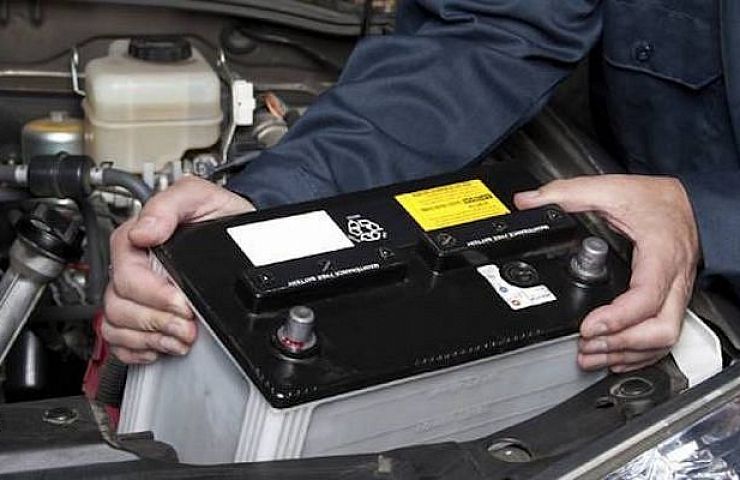Contents
The Right Battery Size
First, you want to ensure the new battery you buy is the right fit for your car. The battery’s power, measured as cold cranking amps (CCA), should be at least as high as the original battery. The dimensions of the battery and the orientation of the battery terminals should be similar to the original battery. Check out this guide to battery sizes.
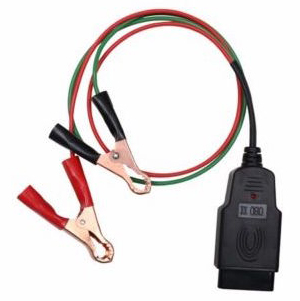
A battery memory saver plugs into the OBDII port to keep the vehicle’s settings.
Modern cars have electronic components that need constant power to maintain settings. We recommend using a battery memory saver tool to avoid needed to reset the time on clocks, media selections, and other settings after changing your car battery. The memory device plugs into the power plug (cigarette lighter) or the OBDII port to provide enough current to keep the settings intact.
Read: Car Memory Saver – The Tool You Need When Changing Your Car’s Battery.
Steps for Replacing the Old Battery
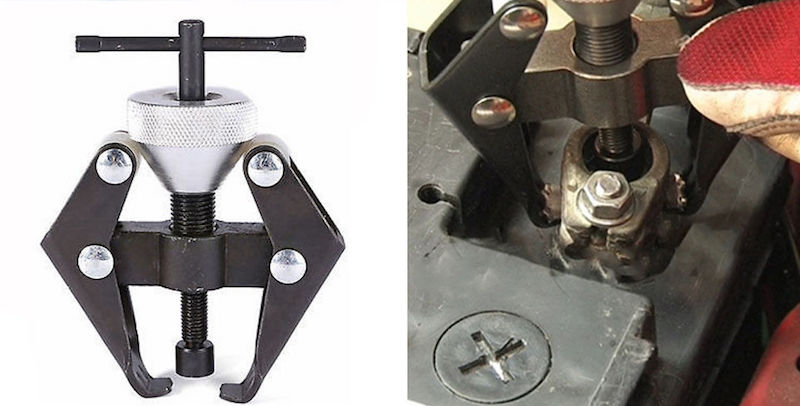
Using a battery terminal puller is the safe way to remove a battery cable
- Always use safety goggles and gloves when working near a battery.
- Begin removing the old battery by disconnecting the battery cables. Carefully look at the battery terminal markings to identify the positive (red) and negative (black) terminals.
- Remove the negative cable first and reconnect the negative cable last. If your wrench is on the positive terminal and accidentally touches any part of the car already connected to the negative battery terminal, you could short-circuit the battery.
- If the negative terminal is disconnected first and connected last, the battery is only electrically connected to the car at the end of this process. Again, the safe and straightforward solution is negative cable first and last.
- Most cables slip over the battery terminal and are held in place with a nut and bolt. Loosen the nut and twist the cable off the battery terminal. The cable should easily come off.
- If they are stubborn, don’t twist excessively on the terminal because you might cause damage. Instead, try prying open the battery terminal with a screwdriver, or better yet, use a battery terminal puller to remove the battery cable.
- Some cars have side terminals. In this case, the battery cable has a long bolt inserted into the casing. Remove that bolt from the battery, and the cable comes off the side of the battery.
- After the battery is electrically disconnected, remove the battery bracket. This mechanism usually has two long bolts holding a bracket on the top of the battery or a clamp bolted to the bottom.
- With the battery bracket removed, lift the battery up and out of the car. Be prepared for the weight: Batteries can weigh 40 pounds or more.
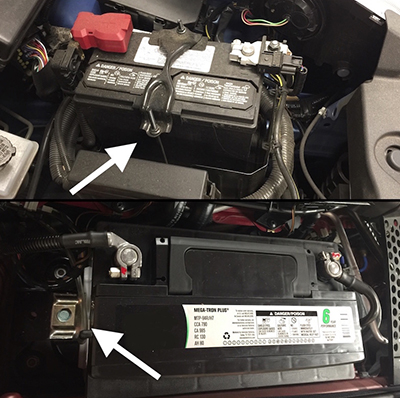
Car batteries are held with a top bracket (top) or a bottom clamp (bottom).
Tidy Up and Swap in the New Battery
- With the battery out, clean the inside of the battery connector. This is a crucial step when changing your car battery. Use a battery terminal cleaner brush to remove any buildup of corrosion or dirt. The goal is a completely clean surface for a good electrical connection.
- Installation of the new battery is the reverse of removing the old battery.
- Place the new battery in the engine, ensuring the terminals have the same orientation as the original.
- Tighten down the battery using the hold-down mechanism.
- An excellent way to ensure the battery connections stay strong is to apply a thin layer of silicone dielectric grease to the battery terminals before reconnecting the battery terminals.
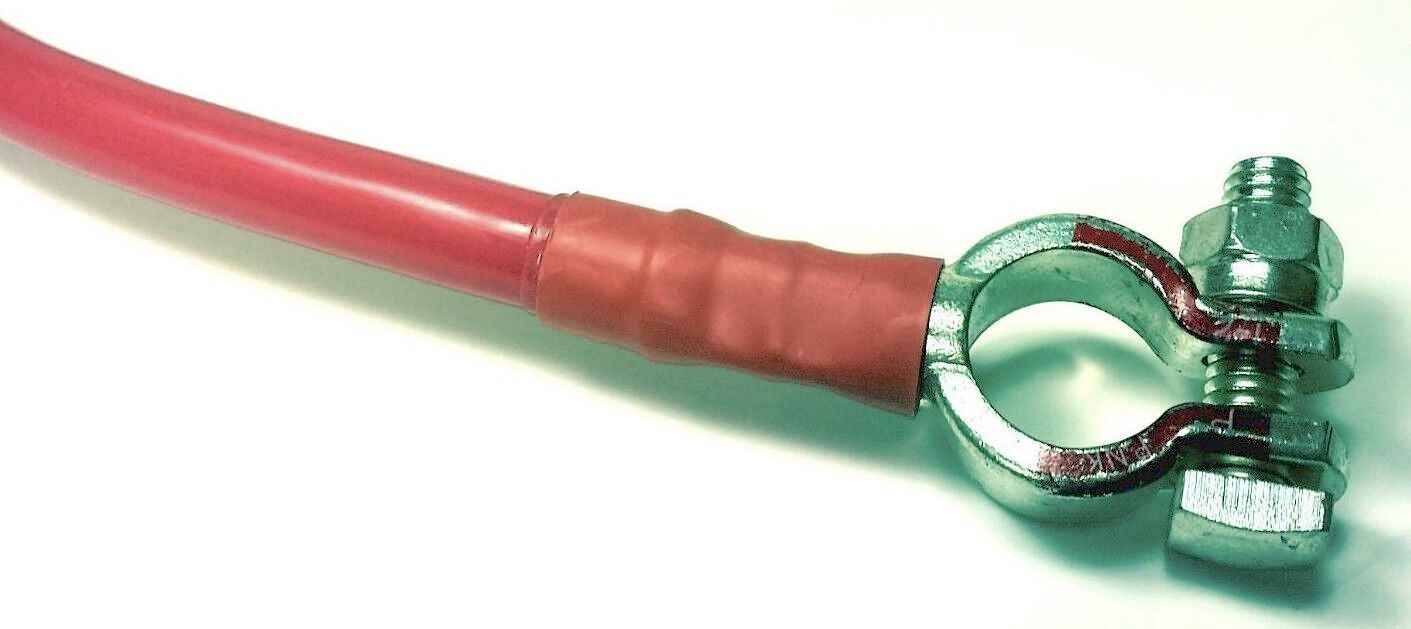
Battery top post terminal
- Reinstall and tighten the battery cables on the positive terminal first and then the negative. Slip the battery cable over the terminal and twist it flush with the battery surface. Tighten the nut. Apply enough force to secure the battery firmly, but not over-tighten the connectors, which can be damaged.
- If you used a battery memory saver tool, you won’t have to reprogram your radio or other settings. Remove the memory saver, start up the car, and off you go with a fresh supply of power.
How Do You Dispose of the Old Battery?
That old battery still has some value. Most auto supply stores or recyclers pay cash for the old battery. Or take it to your local household hazardous material recycling center to safely dispose of it. Be careful while transporting it as there is acid in the car battery.
Replacing a car battery is an easy task that should be completed as part of a routine maintenance plan.
Shop now for car batteries
